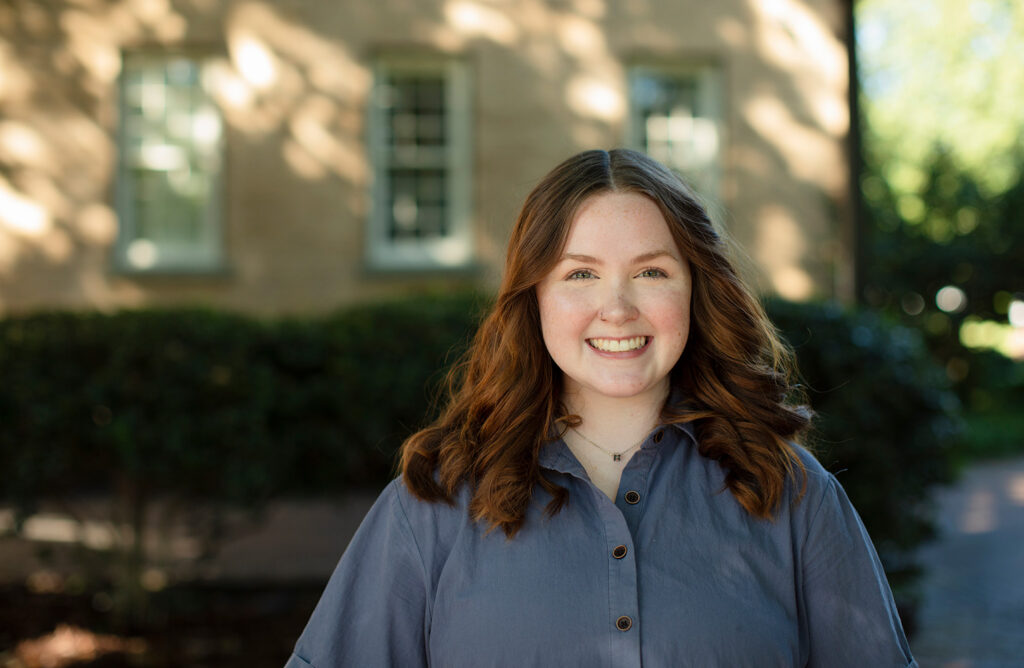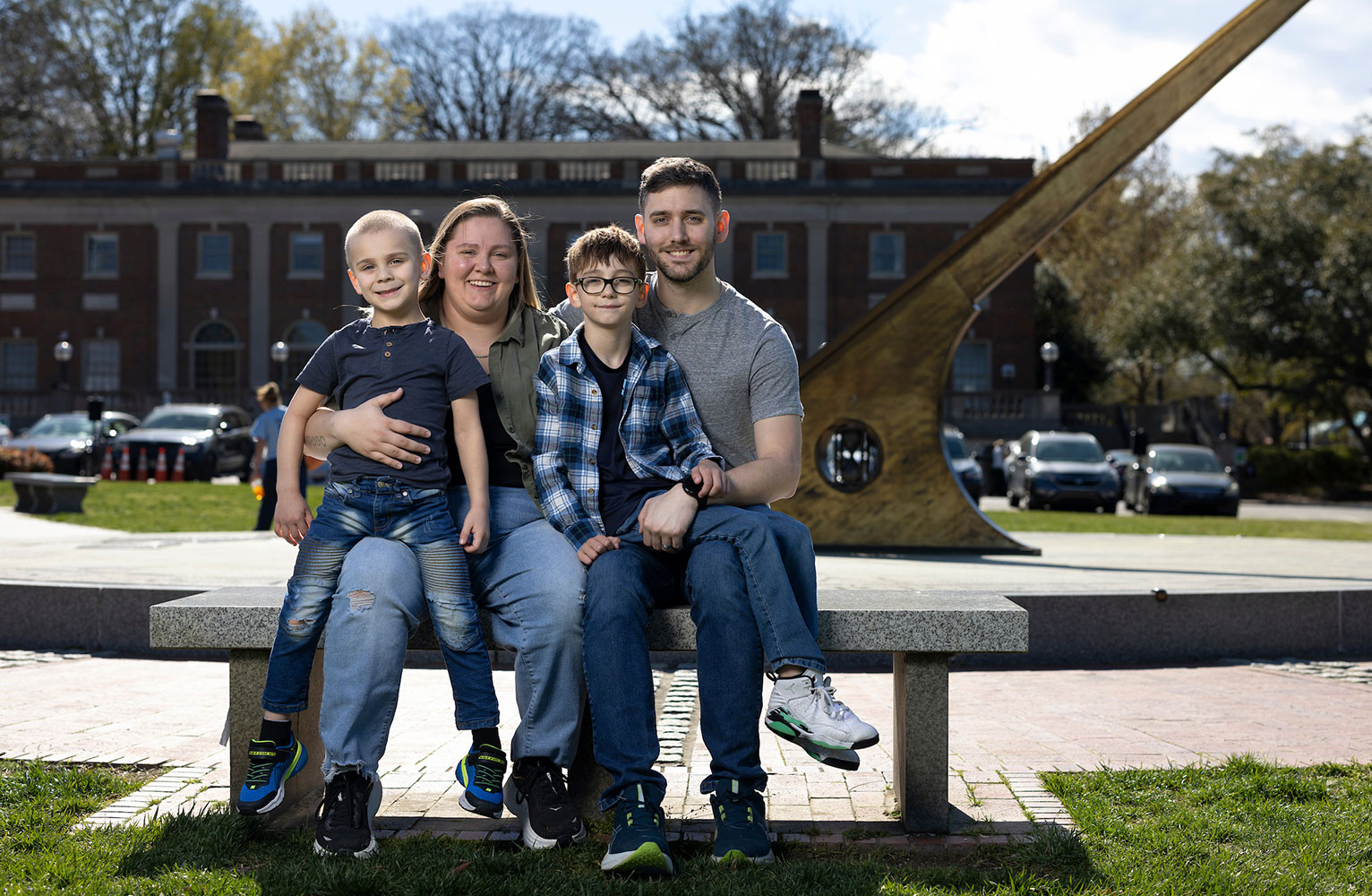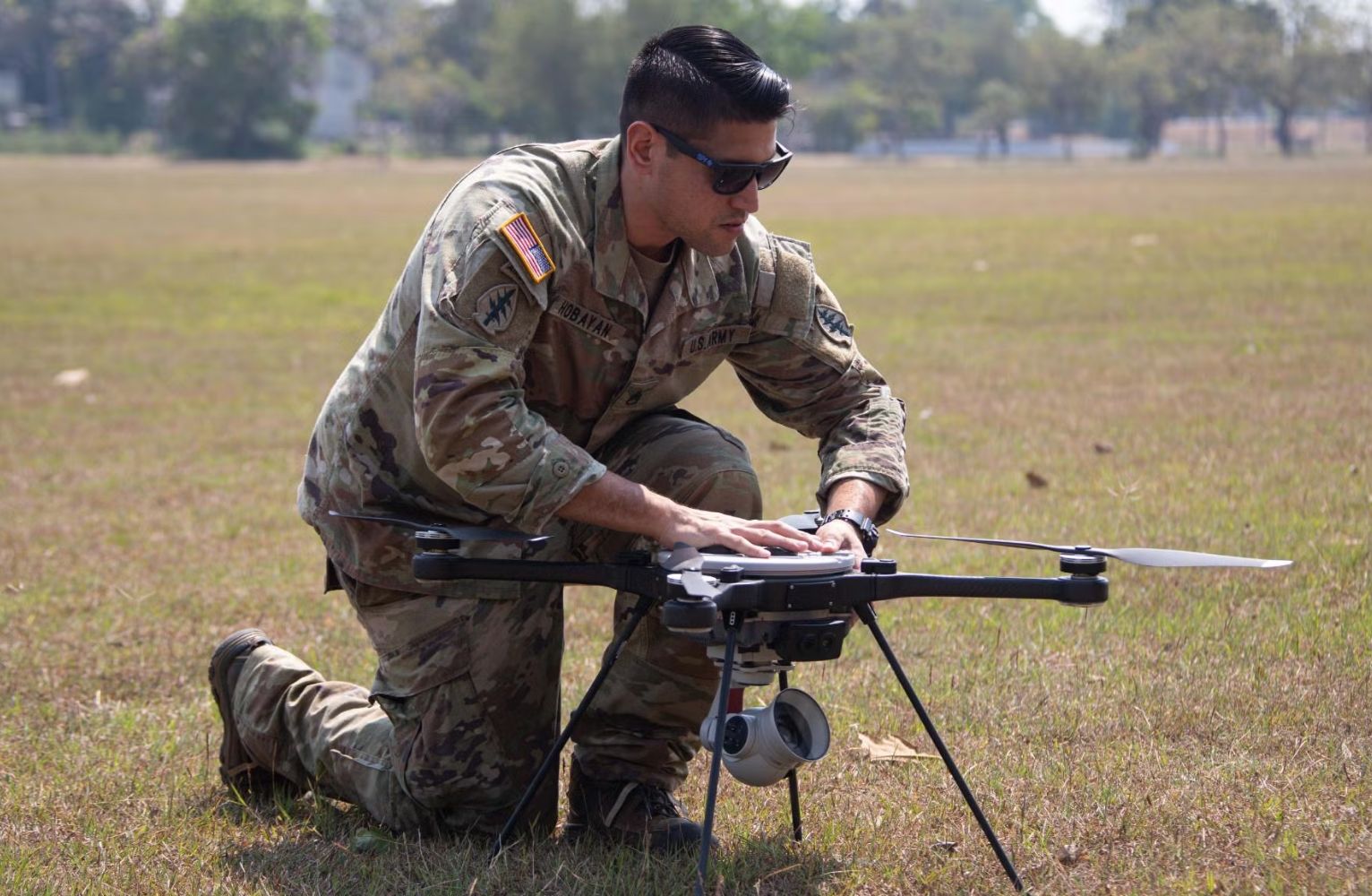
Photo by Jen Hughey
Lauren Baker ’24, a Carolina Covenant Scholar from Matthews, North Carolina, wanted to come to Carolina because of the University’s stature and history. The additional opportunity to graduate debt-free as a Carolina Covenant Scholar “was huge,” she said.
“Being able to walk through the last four years with this incredible sense of peace, knowing that the Carolina Covenant has my back and that I had time to explore — I’ve loved every second.”
During her internship at the Carolina Covenant program office, Lauren worked closely with the director of Covenant Scholar well-being, which was instrumental in her self-awareness in regards to her own mental health.
“My Carolina experience has been different from a lot of Tar Heel generations in the past,” shared Lauren, who entered her first year in fall of 2020 during the COVID-19 pandemic. She recalled the suicides of 2021 and the violence experienced on campus on Aug. 28, 2023. “Because of all that, I think my generation of Tar Heels is more focused on mental well-being and health,” she said.
Lauren learned to equip herself with tools and resources to improve her well-being during her college years. Here are some of her favorites she recommends trying out.
My favorite on-campus resources:
- Carolina Covenant Instagram creates posts about well-being and promotes other resources on campus.
- Healthy Heels posts great tips and articles on their website.
- Counseling and Psychological Services: I went to therapy in the fall of 2021 with CAPS and found it helpful. I still use many of the strategies I learned from my therapist during that time.
- Campus Recreation Yoga Classes: Campus Recreation offers the most amazing yoga classes. (Check out these other Wellness Resources from Campus Recreation.)
My favorite non-university related resources:
- The Trixie Mattel YouTube Channel: Trixie Mattel is a drag queen from RuPaul’s Drag Race, and their YouTube videos make me laugh and take my mind off of all the academic stress.
- Crafting: Crocheting and painting occupies my hands and requires me to be detail-oriented, which calms my anxieties.
- “Yoga with Adrienne” is a yoga YouTube channel I use if I can’t make it to Campus Recreation’s classes.
My favorite cost-effective and technology-free options for prioritizing well-being:
- Walking with friends around campus: One of our favorite spots (specifically this time of year) is Coker Arboretum.
- Journaling: I like the bullet journal model, but in the past I have done detailed journaling, making notes of how I felt throughout the day.
- An “everything shower”: I do a face mask, wash my hair, a hair mask, use a body scrub, and shave my legs. To me, an “everything shower” is the epitome of self-care and should be a part of everyone’s weekly routine.
There are also general rules of well-being I try to adhere to. A hard boundary I have is no schoolwork after 9 p.m. If I’m not feeling the best mentally, I try to eat a snack, drink some water or take a nap. If none of those help, then I reach out to a friend to do something out of my apartment. I also call someone I love every day. Even if it is just a quick five-minute phone call, I feel so much better after I call someone I love every day. This intentional investment in my relationships helps me keep feelings of loneliness at bay.
During my time with the Covenant, I did a research project with Dr. Jayne Davis which was focused on the Carolina Covenant Model of Care. The Model of Care is based on efforts to enhance self-awareness and self-care, facilitate belonging and community building, and promote service utilization, which work together to support students in making it to graduation.
Post-graduation I am honored to be working with the Carolina College Advising Corps. I hope to one day work in an office like the Carolina Covenant and support students and help them know that they are more than just scholars — they’re people first.
Related Stories




